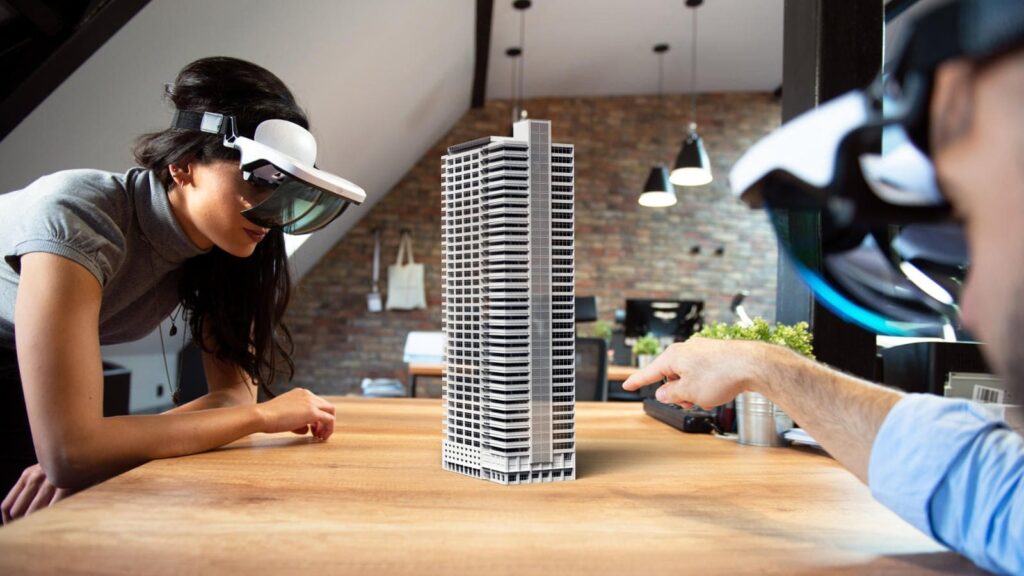
Virtual Reality For Real Estate.
The real estate industry has undergone a significant transformation in recent years, largely driven by technological advancements. Virtual Reality (VR) for real estate has emerged as a groundbreaking tool, reshaping the way properties are marketed, viewed, and transacted. In this article, we’ll delve into the dynamic world of Virtual Reality for real estate and its profound influence on the industry.
Unlocking the Potential of Virtual Reality for Real Estate
Virtual Reality is a technology that immerses users in computer-generated environments, offering a sensory-rich experience that replicates real-world settings. Virtual reality for real estate has unlocked a wealth of opportunities, offering numerous advantages to buyers, sellers, and real estate professionals.
Benefits of Virtual Reality for Real Estate
-
- Immersive Property Tours: Virtual Reality for real estate enables potential buyers to embark on immersive virtual property tours, all from the comfort of their homes. These tours provide a realistic understanding of a property’s layout and features.
- Global Reach: VR transcends geographical boundaries, allowing prospective buyers from anywhere in the world to explore properties virtually, eliminating the need for physical travel.
- Efficiency in Time and Cost: VR streamlines the property viewing process, saving time and resources for both buyers and sellers. Buyers can narrow down their choices without numerous property visits, and sellers can optimize their marketing efforts.
- Property Visualization: Architects and developers can utilize VR to showcase off-plan or under-construction properties, enabling buyers to visualize the finished product and make informed decisions.
- Enhanced Collaboration: Real estate professionals can collaborate effectively with clients through virtual property showings and consultations, bridging geographical distances effortlessly.
Applications of Virtual Reality for Real Estate
-
- Virtual Property Tours: 360-degree virtual property tours provide buyers with an immersive and lifelike experience of homes, apartments, and commercial properties.
- Property Staging: VR allows for digital property staging, enabling buyers to envision spaces with different furnishings and personalized layouts.
- Architectural Visualization: VR aids architects and developers in presenting architectural plans and designs, enabling clients to experience spaces before construction commences.
- Remote Consultations: Real estate agents can conduct virtual consultations and property viewings, connecting with clients regardless of their location.
- Property Development Previews: VR can showcase real estate developments, providing potential buyers with a virtual preview of entire communities or buildings.
Conclusion
Virtual Reality for real estate industry, delivering unparalleled advantages to buyers, sellers, and real estate professionals. As technology advances, the potential applications of VR in real estate are boundless. Whether you’re a prospective buyer in search of your dream property, a seller seeking to enhance your marketing strategy, or a real estate professional aiming to provide exceptional service, Virtual Reality is reshaping the industry. Embrace this technological revolution and explore the immersive world of Virtual Reality for real estate. The future of property viewing and transactions has arrived, filled with exciting opportunities waiting to be explored.
